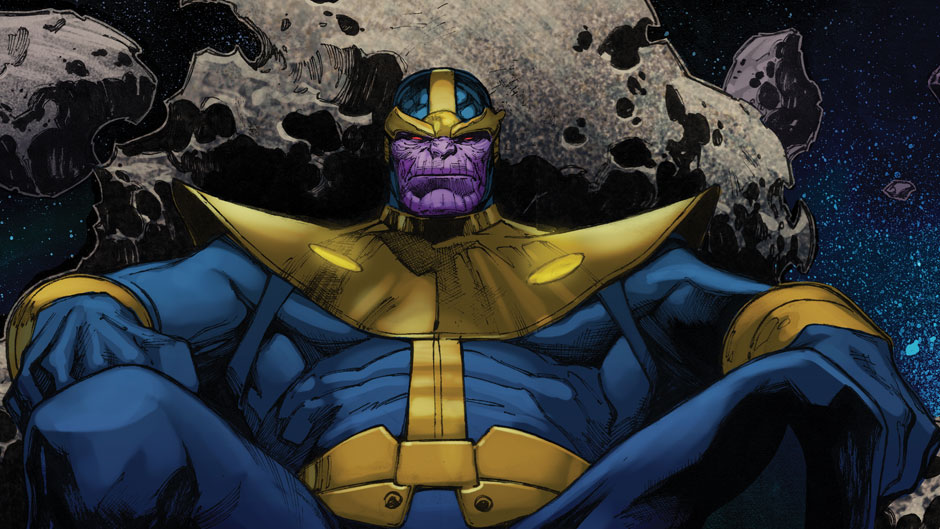Comics and Philosophy Episode #002

In the new addition to the Marvel Cinematic Universe, Avengers: Infinity War, Thanos joins a long list of consequentialist villains – those who are willing to justify the barbarity of their actions by the perceived goodness of their envisioned results: think Adrian Veidt’s gambit against nuclear annihilation at the end of Watchmen, or Emperor Palpatine promising that the empire will ultimately bring peace.
After watching the devastation of his home world, Thanos reaches the conclusion that all civilizations will eventually exhaust the resources on which their lives depend, therefore populations occasionally have to be cut in half in order for life to continue and flourish. So, ignoring the idea that different cultures/planets may be at radically different stages of development or varying proximity to committing ecocide, or that ‘half’ doesn’t seem terribly scientific, Thanos decides to use the six infinity gems which he hunted down like horcruxes to kill off half of all of civilization with a snap of his gauntleted fingers.
Throughout the movie, Thanos applauds when other characters, even adversaries, seem to adopt his Utilitarian mentality. Utilitarianism, a philosophy first proposed by the English philosophers Jeremy Bentham and John Stuart Mill, states that our decisions should come from the desire to do the greatest good for the greatest number of people. In this stance, the end justifies the means, and an action becomes right or wrong solely in virtue of its consequences. After difficult decisions made by both Starlord and Scarlet Witch, Thanos compliments them – seeming downright smitten with Scarlet Witch and ready to accept Chris Pratt as a son-in-law.
This consequentialist view is contrasted with the unwavering rule-based morality of Captain America, who keeps bandying about the “We don’t trade lives” line with whomever is still talking to him. He believes that an action is morally right or wrong on its own, independent of the consequences.
The dichotomy between the Captain America’s stark morality and the Vision’s later decision to sacrifice himself for the greater good mirrors the argument between Kirk and Spock in Star Trek II: The Wrath of Khan. In both cases we see that consequentialist outlooks are sometimes enticing, especially when not taken to genocide-level extremes.
All of that being said, the problem with this “greater good” character motivation for Thanos comes down to one incompatible character trait – his overwhelming Sadism. In this film and GOTG2, we get first hand accounts of his brutal treatment of his daughters, Nebula and Gamora. In scenes where he kills, he does not bemoan the loss of life as a necessary evil. He enjoys it.
So we have Thanos simultaneously as ultra-moral and completely devoid of morality. If Thanos is on the side of the good, then he really needs to re-brand – maybe some warmer colors, a more light-hearted soundtrack, witty catch phrases, and ditch the devil dogs and the corpse-like sidekicks. The very name “Thanos” derives from the Greek word for death, and also recalls Freud’s death-drive. Perhaps something more approachable, like “Ed” or “Eric.”
While this contradiction between extremely concerned savior of the galaxy and sadistic death tyrant could be chalked up to irony of character or cognitive dissonance or just the intricacies of a round character, I prefer the comic book version of Thanos; the one who isn’t concerned with the flourishing of civilization or doing the right thing, but the mad Titan, devoid of all morality, non-sympathetic or relatable, and simply, utterly enamored by only one thing – death herself.
I prefer my Thanos with abysses for eyes.
Jarret Daniel Pervola
I completely agree that Eric and Ed are much more approachable names. Very interesting observations here!